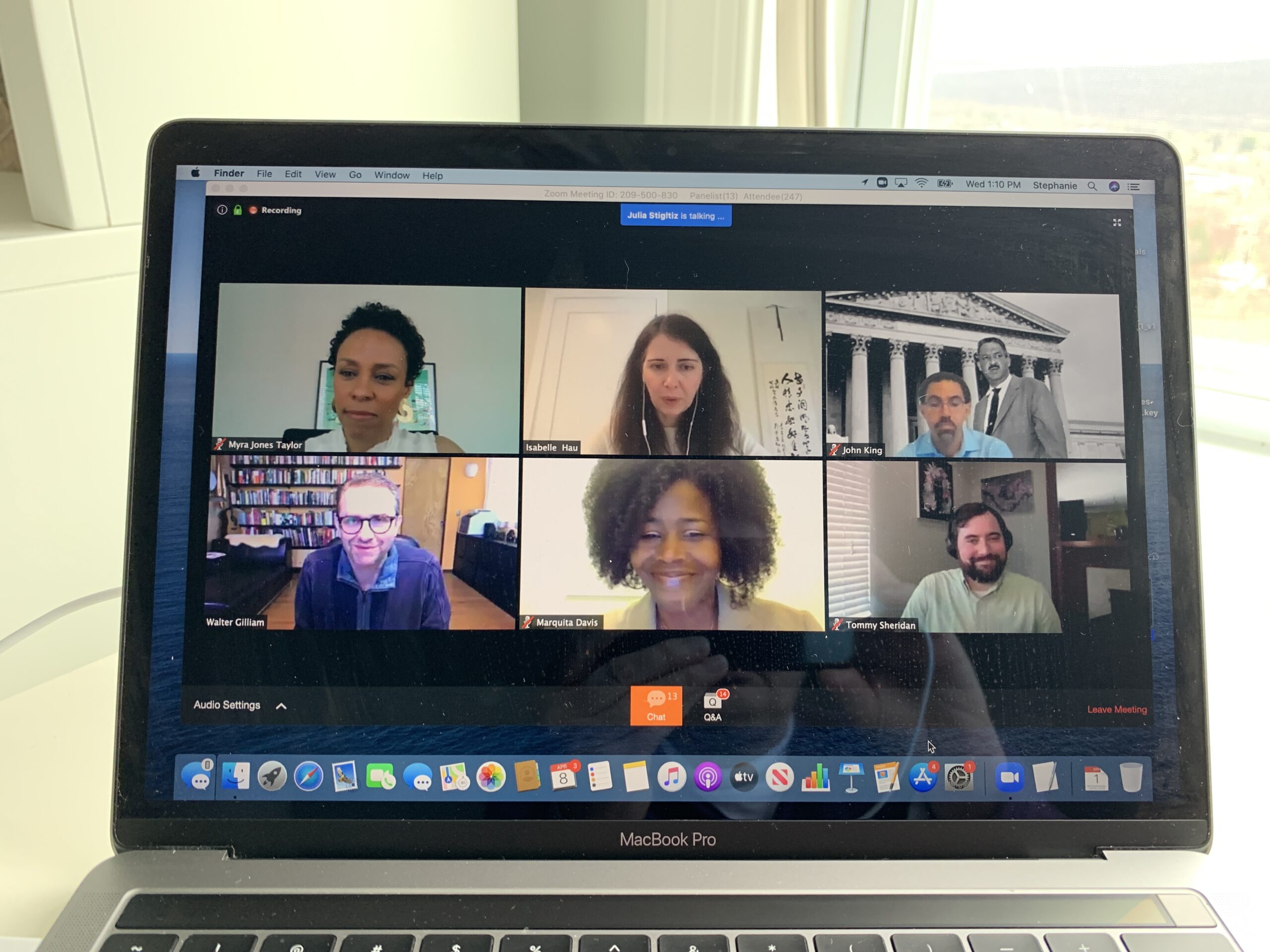United States 
Early Learning Post COVID-19
Rebuilding Based On Equity, Resiliency, Dignity and Love
United States 
Rebuilding Based On Equity, Resiliency, Dignity and Love

TOP, left to right: Myra Jones-Taylor, Chief Policy Officer, Zero to Three; Isabelle Hau, Partner, Imaginable Futures; John King, President/CEO, Ed Trust, 10th U.S. Secretary of Education BOTTOM, left to right: Walter Gilliam, Professor at The Child Study Center and Director of the Edward Zigler Center in Child Development and Social Policy, Yale University; Marquita Davis, Deputy Director of Early Learning, Gates Foundation; Tommy Sheridan, Deputy Director, National Head Start Association
Well before the COVID-19 pandemic, the early childhood education field in the United States grappled with how to equitably nurture the development of our littlest learners. Entrenched disparities across race and income level made the quest for equity an essential pursuit—but not yet a collective endeavor. While the pandemic has exacerbated existing inequality, it also represents a rare opportunity—if we choose to seize it.
Early learning has long deserved urgent attention from policymakers and education innovators, but now it needs emergency action and investment. From past research, we know that more than 50% of children from low-income backgrounds are not fully prepared to enter kindergarten and, especially concerning right now, we also know that crises that disrupt early care and learning widen these gaps. Hurricane Katrina, for instance, caused widening gaps between children of different socio-economic and racial backgrounds.
Every year, GSV convenes ASU GSV, one of the largest conferences on the future of learning. On April 8, GSV held a virtual summit to share insights on how early learning can move from the inequities of the past, BC (“Before COVID-19”), to a more equitable future AD (“After Disease”).
Many working parents now find their once-dual identities converging, often in inharmonious ways: parents who try to balance remote work and child care, parents in essential jobs who struggle to find care for their children so that they can care for all of us, and the millions of other parents who have lost their jobs and are finding it difficult to access government relief.
As Myra Jones-Taylor, Chief Policy Officer at Zero To Three said well, “What families have experienced with COVID-19 is like an earthquake: a sudden, unexpected episode, that disrupts everyone without prejudice. But sometimes an earthquake is accompanied by a tsunami that spreads across the ocean and disproportionately impacts those that can’t make it to higher ground – for this crisis that means black and brown families and our most overburdened and under-resourced families.”
For these reasons, the COVID-19 pandemic requires us to rebuild a childcare and early childhood education system that works for everyone. Here, from that ASU GSV session, are a few solutions to do just that.
This crisis has exposed every vulnerability of our system. Inequitable outcomes are a result of inequitable inputs. We are not here by accident. And we will not arrive at a more equitable place by accident, either.
Walter Gilliam, Yale University Child Study Center Professor and Director of the Edward Zigler Center on Child Development and Social Policy
Our immediate future will rely on an economic recovery supported by a well-functioning childcare system – one that lets families go back to work. In the long-term, our future depends on a thriving citizenry, with the kind of attributes best developed in the early years of life – attributes like creativity, critical thinking, complex problem-solving, emotional intelligence or cognitive flexibility.
At Imaginable Futures, we believe that, for each and every child to thrive, we need a functioning childcare system and a high quality early learning ecosystem that prioritizes equity, resiliency, dignity and love, and celebrates educators and families. To get there, it will take private sector and philanthropic leadership and innovation working alongside elected officials on both side of the partisan divide. We don’t lack good ideas for positive change. We just have to act on them.
You can listen to the replay and see the full agenda and list of speakers for the April 8, 2020 GSV session at: https://gsv.ventures/virtual-summit-series/